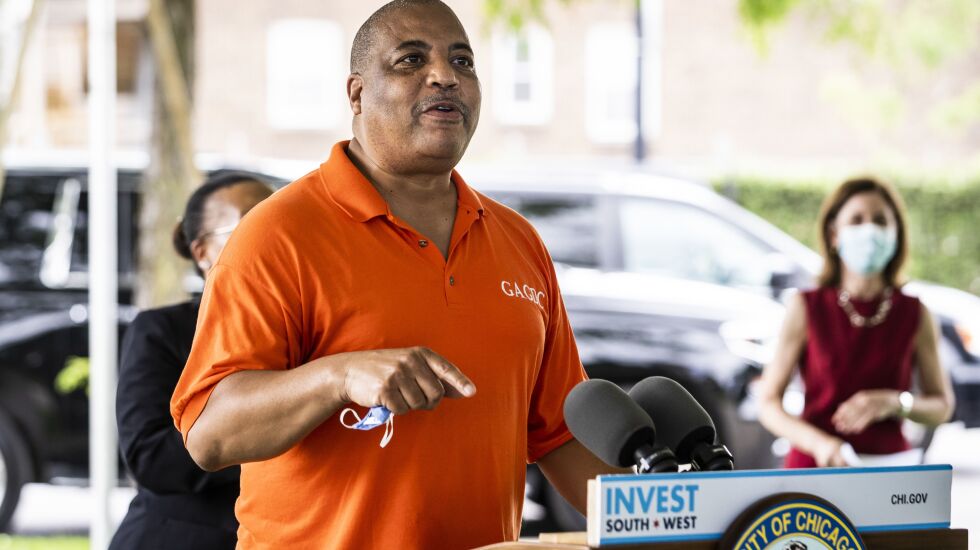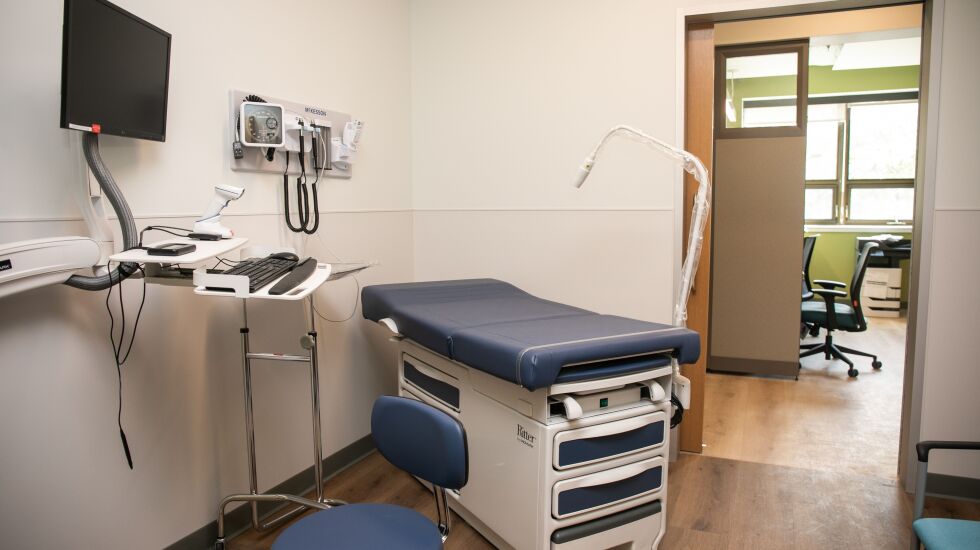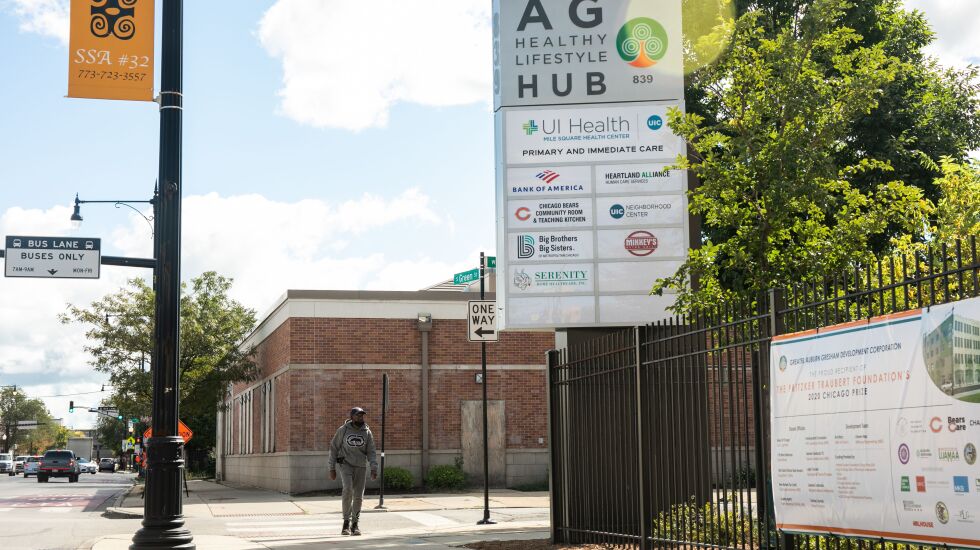
Vacant for 25 years, a former furniture store in Auburn Gresham will soon be open for business as a community health and education center.
Developers hope that besides being home to myriad businesses focused on health and prosperity, the four-story building also will become a beacon of community, a space where everyone is welcome to spend time in while taking advantage of free Wi-Fi, dining and catching up with friends.
The four-story, 60,000 square-foot building at 839 W. 79th St., built in 1925, still sports its original terra-cotta exterior trim.
“It’s very prominent in the neighborhood,” said Carlos Nelson, CEO of the Greater Auburn Gresham Development Corporation. “Unfortunately, 25 years of a hulking building like that being vacant is not a good thing.”
Ribbon-cutting for the Gresham Healthy Lifestyle Hub is Friday, with a grand-opening ceremony, open to the public, scheduled for Nov. 11. The project got a huge boost when the development corporation received $10 million for winning the inaugural Pritzker Traubert Foundation’s Chicago Prize in 2020.
The development corporation’s winning initiative included not just the rehab of the building, but also its plans for an urban farm and renewable energy center.
The $12.4 million Hub also received some financial backing from the city’s Invest South/West initiative.

Nelson said his group was motivated in part by seeing several businesses in the area close in recent years. Among them: Save A Lot, Aldi, CVS and a Bank of America branch — though plans are in the works to reopen the Save A Lot under new ownership.
The Hub sits across from the vacant Save A Lot and CVS locations, and Nelson wants it to bring back some of what the community lost when businesses moved away. The development corporation bought the building five years ago, with the goal of filling those gaps and others, starting with a federally qualified health center.
The Hub will have that, and more. It will be anchored by a medical facility, operated by University of Illinois Health, providing primary and immediate care, as well as dental care and mental health treatment.
But it won’t just be health care. The Hub will bring a Bank of America branch back to the area, along with a Chicago Bears Teaching Kitchen, an office for the Big Brothers Big Sisters mentoring group, a pharmacy and a third Chicago location of Mikkey’s Retro Grill.
The UI Health location is much needed in the neighborhood, said Camellio Lincoln, senior project manager of the Hub. According to Lincoln, there is a gap in available preventative and immediate care in the area.

“Currently, education about immediate and urgent care is not really out there,” Lincoln said. “So people are still going to the emergency rooms, which is very expensive.”
Added Nelson: “We have not had access to high quality health care in this community in generations.”
The Hub will bring over 150 living wage jobs to the area, and all Hub tenants are dedicated to hiring Black and Brown people, Lincoln said, part of the project’s goal of helping to “build a wealth generation” for the community, Nelson said.
Heartland Alliance also will have a branch office in the Hub. The organization aims to help people out of poverty through jobs, housing and family services.

A University of Illinois Chicago neighborhood center also will have space in the building and will do a number of community outreach programs, Lincoln said. It also will provide a pro-bono legal clinic based in the center to help residents handle legal issues and also educate them on their rights.
An additional gift from the Chicago Bears made the teaching kitchen, along with a community room, where nutritional training and cooking classes can be held.
The first floor of the building also will have a common space where anyone can hang out and enjoy air conditioning or heat, Lincoln said.
Even before the Hub opens, Nelson is thinking about what’s next for the rest of the neighborhood. Among his ideas: a food pantry; a therapy center for seniors, an incubator space for budding entrepreneurs and a shuttle service — all occupying the vacant spaces around the area.
“Right on 79th in the middle of the despair and the disinvestment that was for 50 years, we knew that it would catalyze other development,” Nelson said. The hope, he added, is “that the development would be done by us, for us.”







